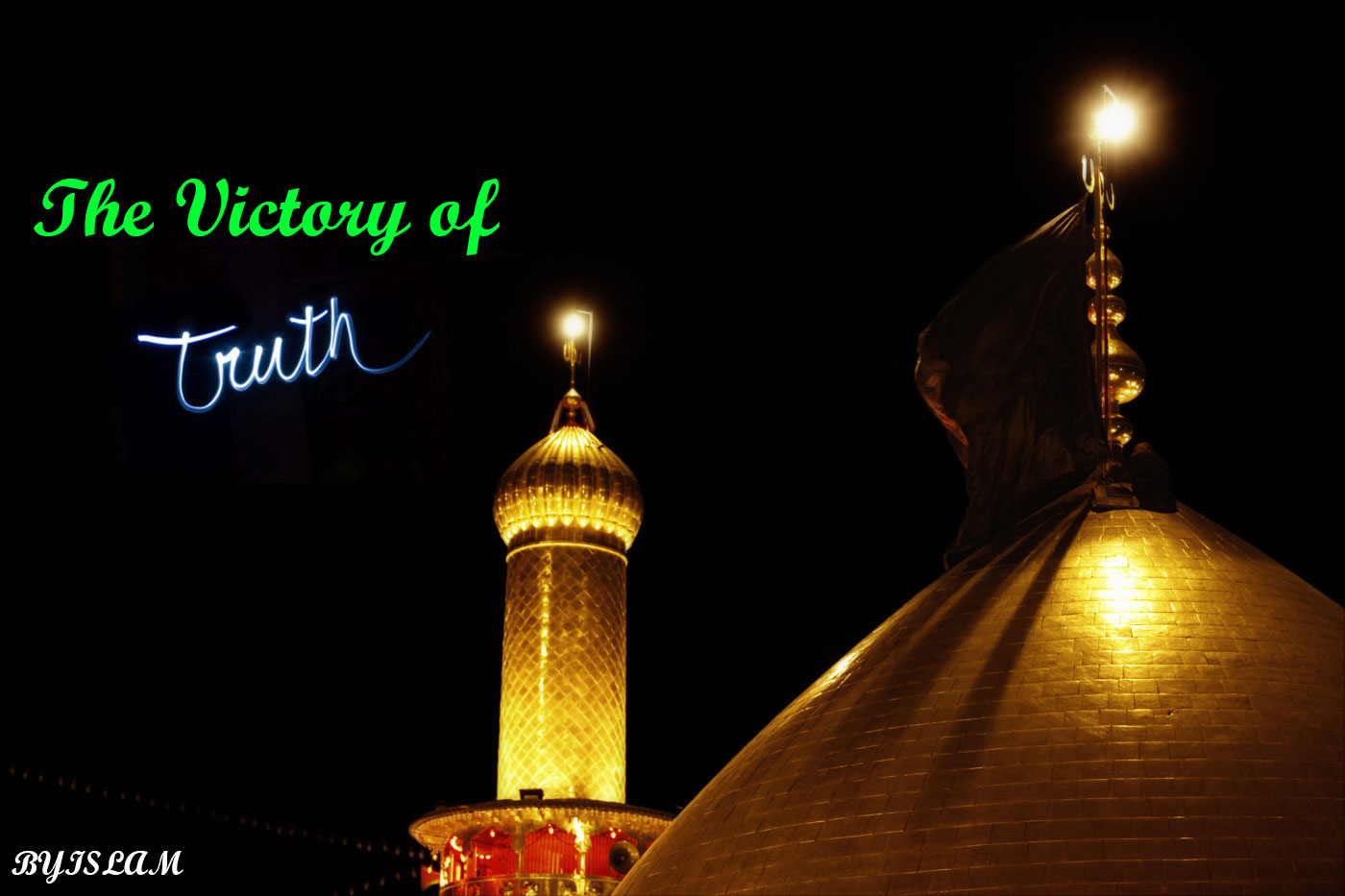The Victory of Truth / part 2
 It was five years after the Muslims had accompanied the Prophet [s.a.w.] and his family in the migration (hijrah) to Medina, when the Holy Prophet’s daughter, Hadrat Fatima [a.s.], gave birth to a little girl. When her father, Imam Ali [a.s.], saw his daughter for the first time Imam Husayn [a.s.], who was then almost three years old, was with him.
It was five years after the Muslims had accompanied the Prophet [s.a.w.] and his family in the migration (hijrah) to Medina, when the Holy Prophet’s daughter, Hadrat Fatima [a.s.], gave birth to a little girl. When her father, Imam Ali [a.s.], saw his daughter for the first time Imam Husayn [a.s.], who was then almost three years old, was with him.
The boy exclaimed in delight, “O father, Allah has given me a sister.” At those words Imam Ali [a.s.] began to weep, and when Husayn [a.s.] asked why he was crying so, his father answered that he would soon come to know. Fatima [a.s.] and Ali [a.s.] did not name their child until a few days after her birth, for they awaited the Prophet’s return from a journey so that he could propose the name.
When finally the baby girl was brought before him he held her in his lap and kissed her. The Angel Jibra’il came to him and conveyed the name that was to be hers, and then he began to weep.
The Prophet [s.a.w.] asked why Jibra’il wept and he answered, “O Prophet of Allah, from early on in life this girl will remain entangled in tribulations and trials in this world.- First she will weep over your separation (from this world); thereafter she will bemoan the loss of her mother, then her father, and then her brother Hasan. After all this she will be confronted with the trials of the land of Karbala and the tribulations of that lonely desert, as a result of which her hair will turn grey and her back will be bent.”
When the members of the family heard this prophecy they all broke down in tears. Imam Husayn [a.s.] now understood why earlier his father had also wept. Then the Prophet [s.a.w.] named her Zaynab [a.s.].
When the news of Zaynab’s birth reached Salman al-Farsi, he went to Ali [a.s.] to congratulate him. But instead of seeing him happy and rejoicing he saw Ali [a.s.] shed tears, and he too was apprised of the events of Karbala and the hardships that were to befall Zaynab [a.s.].
One day, when Zaynab [a.s.] was about five years old, she had a strange and terrible dream. A violent wind arose in the city and darkened the earth and the sky. The little girl was tossed hither and thither, and suddenly she found herself stuck in the branches of a huge tree. But the wind was so strong that it uprooted the tree. Zaynab [a.s.] caught hold of a branch but that broke. In a panic she grabbed two twigs but these too gave way and she was left falling with no support.
Then she woke up. When she told her grandfather, the Prophet [s.a.w.], about this dream he wept bitterly and said, “O my daughter that tree is me who is shortly going to leave this world.
The branches are your father Ali and your mother Fatima Zahra, and the twigs are your brothers Hasan and Husayn. They will all depart this world before you do, and you will suffer their separation and loss.”
